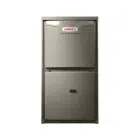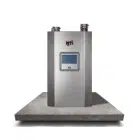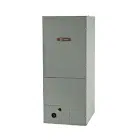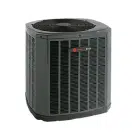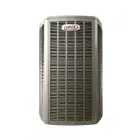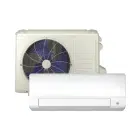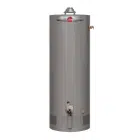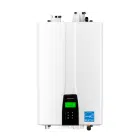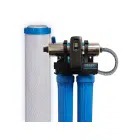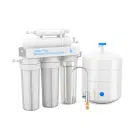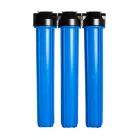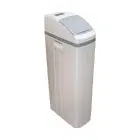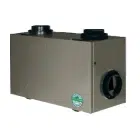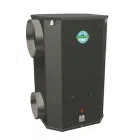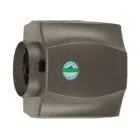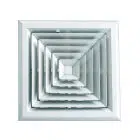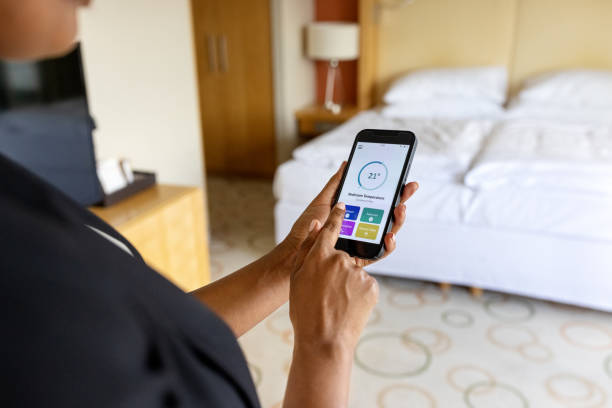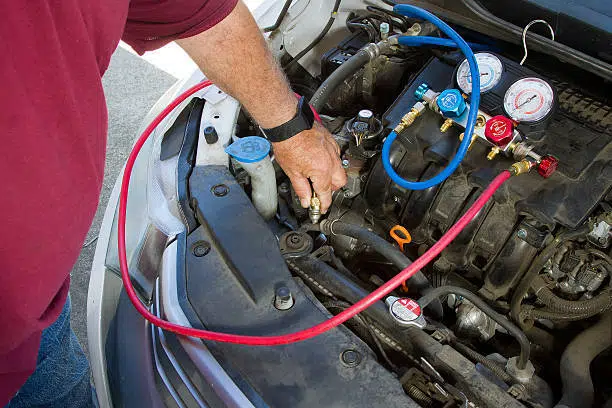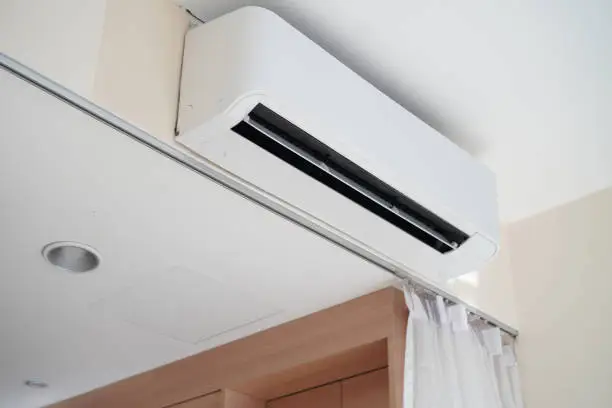
Table of Contents
Are you experiencing the frustration of your air conditioner not cooling your home as it should? When your AC unit fails to deliver the expected comfort, it can lead to discomfort and inconvenience, especially during hot summer months.
In this comprehensive guide, we’ll delve into the potential causes of an air conditioner not cooling, along with practical solutions to address the issue. As a leading provider of HVAC services in Canada, we’re committed to helping you restore optimal cooling performance to your home.
Common Reasons Why Your AC Not Cooling
When your air conditioner fails to deliver the expected cooling, it can lead to discomfort and frustration, especially during hot summer days. Understanding the common reasons behind this issue is essential for effective troubleshooting and resolution. Let’s explore the primary factors that can cause your AC unit to underperform and provide actionable solutions to address them.
Dirty Air Filters
Your air conditioning system relies on clean air filters to maintain proper airflow. Over time, these filters can become clogged with dust, dirt, and debris, restricting the airflow to your AC unit. When the airflow is impeded, your air conditioner may struggle to cool your home efficiently, resulting in reduced comfort levels.
Solution: Regularly check and replace your air filters according to the manufacturer’s recommendations, typically every 1-3 months. This simple maintenance task can significantly improve your AC’s performance and energy efficiency.
Refrigerant Leaks
Refrigerant plays a crucial role in the cooling process of your air conditioning system. If there is a leak in the refrigerant lines, your AC unit may experience a decline in cooling performance. Low refrigerant levels can impair the system’s ability to remove heat from your home, resulting in inadequate cooling.
Solution: If you suspect a refrigerant leak, it’s essential to contact a qualified HVAC technician to inspect and repair the issue. Attempting to handle refrigerant leaks without proper training and equipment can be dangerous and may further damage your AC unit.
Thermostat Issues
The thermostat serves as the control center for your air conditioning system, regulating the temperature and ensuring optimal cooling performance. If the thermostat is malfunctioning or set incorrectly, it can lead to inconsistencies in temperature and inadequate cooling.
Solution: Verify that your thermostat is set to the desired temperature and is functioning correctly. If you notice any discrepancies or irregularities, consider recalibrating or replacing the thermostat to restore proper operation.
Condenser Unit Problems
The condenser unit is responsible for releasing heat absorbed from your home’s indoor air into the outdoor environment. If the condenser coils are dirty or the fan is malfunctioning, it can impede the heat transfer process, resulting in reduced cooling efficiency.
Solution: Inspect the condenser unit regularly and remove any debris or vegetation that may be obstructing airflow. Additionally, clean the condenser coils and ensure that the fan is operating smoothly. If you encounter any issues, consult with a professional HVAC technician for assistance.
Blocked or Dirty Evaporator Coils
The evaporator coils play a vital role in the cooling process, absorbing heat from the indoor air and facilitating the exchange of heat with the refrigerant. When the evaporator coils are blocked or coated with dirt and grime, it inhibits heat absorption and compromises cooling performance.
Solution: Schedule regular maintenance appointments with a qualified HVAC technician for professional air conditioner maintenance to clean and inspect the evaporator coils. Additionally, ensure proper airflow around the coils by keeping vents and registers unobstructed.
If you’re unable to determine why your AC unit not cooling, simply reach out to the HVAC Service Solutions team through the link below for prompt assistance.
How to Fix Your AC Cooling Issues
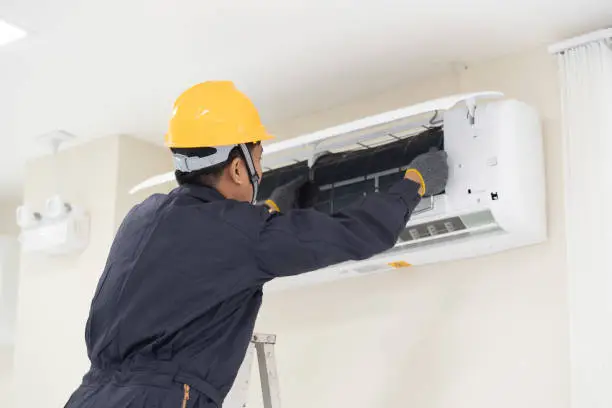
Knowing how to troubleshoot and resolve cooling issues can save you time and money. Below, we’ll outline practical steps on how to address AC not cooling problems, from DIY troubleshooting tips to professional HVAC services.
Regular Maintenance
Air conditioning systems require regular maintenance to ensure optimal performance and longevity. By scheduling routine inspections and tune-ups, you can identify and address potential issues before they escalate into major problems.
DIY Troubleshooting Tips
Before calling for professional assistance, there are several DIY troubleshooting steps you can take to troubleshoot your AC cooling issues. These include checking for obvious signs of damage or malfunction, verifying power sources, and cleaning accessible components.
Professional HVAC Services
When DIY efforts fall short or if you encounter complex issues with your air conditioning systems, it’s crucial to enlist the expertise of a professional HVAC technician. HVAC Service Solutions companies, like ours, have the knowledge, experience, and specialized equipment to diagnose and repair a wide range of AC cooling problems.
You can find detailed information about all air conditioner expenses, check out our comprehensive guide below.
https://thehvacservice.ca/central-air-conditioner-installation-expenses/
Conclusion
In conclusion, an air conditioner not cooling properly can be a source of frustration and discomfort for homeowners. By understanding the common reasons behind this issue and following the recommended solutions outlined in this guide, you can restore optimal cooling performance to your home. Whether it’s addressing dirty air filters, refrigerant leaks, thermostat issues, condenser unit problems, or evaporator coil issues, timely action is essential to prevent further damage and ensure your comfort. Remember, regular maintenance and professional HVAC services are key to keeping your air conditioning system running smoothly and efficiently.
If you’re experiencing issues with your AC unit not cooling adequately, don’t hesitate to contact us at HVAC Service Solutions for expert assistance. Our team of skilled technicians is dedicated to providing reliable solutions to all your HVAC needs. Let us help you stay cool and comfortable all year round.
Frequent Asked Questions
Why is my air conditioner not cooling the room properly?
Several factors could contribute to your air conditioner not cooling adequately. One common issue is dirty air filters, which can restrict airflow and reduce cooling efficiency. Low refrigerant levels due to leaks in the refrigerant lines can also impair your AC unit’s ability to remove heat from your home, resulting in insufficient cooling. Additionally, thermostat issues, such as incorrect settings or malfunctions, can lead to temperature inconsistencies and inadequate cooling. Problems with the condenser unit, such as dirt buildup or fan malfunctions, can hinder heat transfer and reduce cooling efficiency. Finally, blocked or dirty evaporator coils can impede heat absorption and compromise cooling performance.
How often should I replace my air filters to prevent cooling problems?
To prevent cooling problems, it’s essential to replace your air filters regularly. The frequency of replacement depends on various factors, including the type of filter, your home’s indoor air quality, and the level of usage. In general, standard fiberglass filters should be replaced every 1-3 months, while high-efficiency filters may require replacement every 6-12 months. However, it’s a good idea to check your filters monthly and replace them as needed to ensure optimal airflow and cooling efficiency.
What should I do if I suspect a refrigerant leak in my AC unit?
If you suspect a refrigerant leak in your AC unit, it’s crucial to address the issue promptly to prevent further damage and ensure safe operation. Contact a qualified HVAC technician to inspect your system and perform a leak detection test. If a leak is detected, the technician will repair the leak and recharge the refrigerant to restore proper levels. Attempting to handle refrigerant leaks yourself is not recommended, as it can be hazardous and may void your warranty.
How can I tell if my thermostat is malfunctioning?
There are several signs that may indicate a malfunctioning thermostat. If you notice temperature inconsistencies, such as certain rooms feeling warmer or colder than others, or if your AC unit fails to reach the set temperature, it could indicate a problem with the thermostat. Additionally, if the thermostat displays incorrect temperature readings or is unresponsive to adjustments, it may be malfunctioning. To determine if the thermostat is the issue, verify its settings and functionality, and consider recalibrating or replacing it if necessary.
What maintenance tasks should I perform on my AC's condenser unit?
Proper maintenance of the condenser unit is essential for ensuring optimal cooling performance. Regular tasks include keeping the unit clean and free of debris, such as leaves, grass clippings, and dirt, which can obstruct airflow and hinder heat transfer. Additionally, check the fan for smooth operation and ensure that it’s not obstructed by any objects. It’s also a good idea to trim vegetation and remove any obstacles around the unit to allow for adequate airflow. Finally, consider scheduling professional maintenance at least once a year to inspect and tune up the condenser unit for peak performance.
How can I clean the evaporator coils to improve cooling performance?
Cleaning the evaporator coils is a critical maintenance task that can improve your AC’s cooling performance. To clean the coils effectively, it’s best to schedule a professional maintenance appointment with a qualified HVAC technician. They have the knowledge, experience, and specialized equipment to safely access and clean the coils. During the cleaning process, the technician will remove any dirt, dust, and debris that may have accumulated on the coils, ensuring optimal heat exchange and cooling efficiency. Regular maintenance of the evaporator coils is essential for maintaining efficient AC operation and indoor comfort.
Are there any DIY troubleshooting tips I can try before calling a professional?
Yes, there are several DIY troubleshooting tips you can try before calling a professional for assistance with your AC cooling issues. Start by checking for power supply issues, such as tripped circuit breakers or blown fuses, and ensure that your thermostat is set correctly and functioning properly. Inspect visible components of your AC unit for signs of damage or wear, such as loose or damaged wiring, and clean any visible debris or obstructions around the outdoor condenser unit. Additionally, check your air filters and replace them if they’re dirty or clogged, as restricted airflow can impede cooling performance. If these troubleshooting steps don’t resolve the issue, it’s best to contact a qualified HVAC technician for further diagnosis and repair.
How often should I schedule professional maintenance for my air conditioning system?
It’s generally recommended to schedule professional maintenance for your air conditioning system at least once a year. Ideally, this maintenance should be performed before the start of the cooling season to ensure that your AC unit is in optimal condition when you need it most. During a professional maintenance appointment, a qualified HVAC technician will inspect and tune up your AC system, identifying any potential issues and addressing them before they escalate into major problems. Regular maintenance helps improve cooling efficiency, extend the lifespan of your AC unit, and prevent costly repairs down the line.
What are the benefits of regular maintenance for my air conditioning system?
Regular maintenance offers numerous benefits for your air conditioning system and your overall comfort. Firstly, it helps improve cooling efficiency by ensuring that all components are clean, lubricated, and functioning properly. This can lead to lower energy bills and reduced wear and tear on your system. Additionally, regular maintenance helps extend the lifespan of your AC unit by addressing minor issues before they escalate into major problems. It also helps maintain indoor air quality by removing dust, dirt, and debris from the system. Finally, regular maintenance gives you peace of mind knowing that your AC system is operating safely and reliably, keeping you cool and comfortable all summer long.
How can I find a reliable HVAC service provider to help with my cooling issues?
Finding a reliable HVAC service provider is crucial for ensuring that your cooling issues are addressed effectively and professionally. Start by asking friends, family, or neighbors for recommendations, as word-of-mouth referrals can be a valuable resource. You can also check online reviews and ratings to learn about other customers’ experiences with local HVAC companies. Look for companies that are licensed, insured, and have a good reputation in the community. Additionally, consider contacting multiple companies to compare pricing, services offered, and availability. A reliable HVAC service provider will have the expertise, experience, and resources to diagnose and resolve your cooling issues efficiently, restoring comfort to your home.
Share

